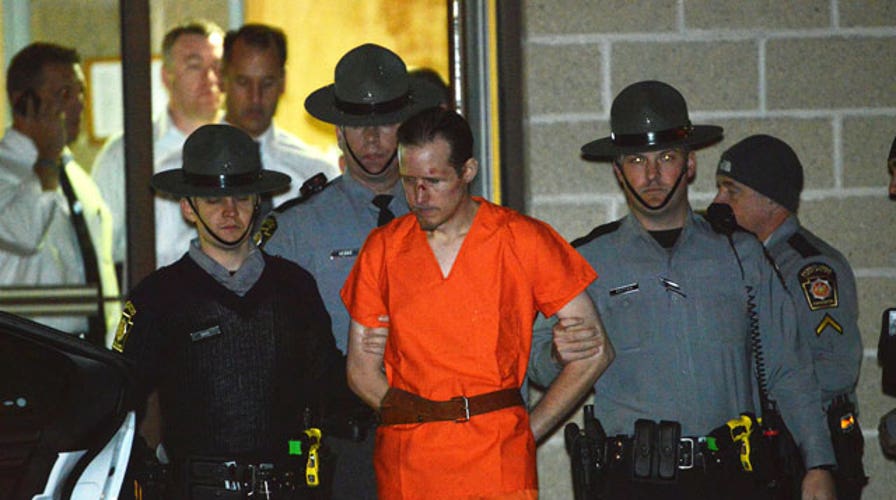BLOOMING GROVE, Pa. – A Pennsylvania State Police barracks reopened to the public Wednesday exactly two months after a deadly ambush that brought thousands of law enforcement officials to the Pocono Mountains in a 48-day search for the killer.
The Blooming Grove station in northeastern Pennsylvania has been partially shut down since coming under attack Sept. 12. Police say 31-year-old Eric Frein hid in the woods across the street and used a high-powered rifle to kill Cpl. Bryon Dickson and wound Trooper Alex Douglass during a late-night shift change.
Frein was captured Oct. 30 after an intensive manhunt that upended daily life in this mountainous region popular with tourists. He has not yet entered a plea. Prosecutors are seeking the death penalty.
At a news conference outside the barracks, Lt. Col. George Bivens said the men and women who serve there were anxious and excited to reclaim their workplace.
"I think it is part of the healing process. I think it's good for our people to be back here," he said. "And the community's been so good to us that we owed it to them to be operational as soon as we possibly could."
Two barracks employees, a trooper and a communications operator, have not been able to resume working, Bivens said.
"As you can imagine, our people dealt with some horrific sights the night of the attack. We are working with them to ensure they are fully prepared to return to work," he said.
The barracks reopened with additional, unspecified security, though Bivens acknowledged the new measures will not prevent a sniper attack launched from the vast woods across the road.
About 80 yards from the front door of the barracks, authorities have marked the spot where they believe Frein was standing when he opened fire. Several evidence flags indicate where the shell casings landed, and a trail of flags leading deeper into the woods show the route Frein is believed to have taken after the ambush.
Inside the station, Dickson's locker and mailbox will remain as they are, and some photos have been enlarged and put on the walls. Lt. Christopher Paris, the station commander, said discussions are ongoing on how best to remember Dickson.
"We have said all along that we're going to work to find what our new normal is here," he said. "Obviously, things will never be the same."
Douglass was shot in the pelvis. On Monday, an ambulance took him to the Hospital for Special Surgery, an orthopedic hospital in New York City, to treat what Bivens described as "ongoing complications" from his wounds. He said Douglass would require additional surgery.


